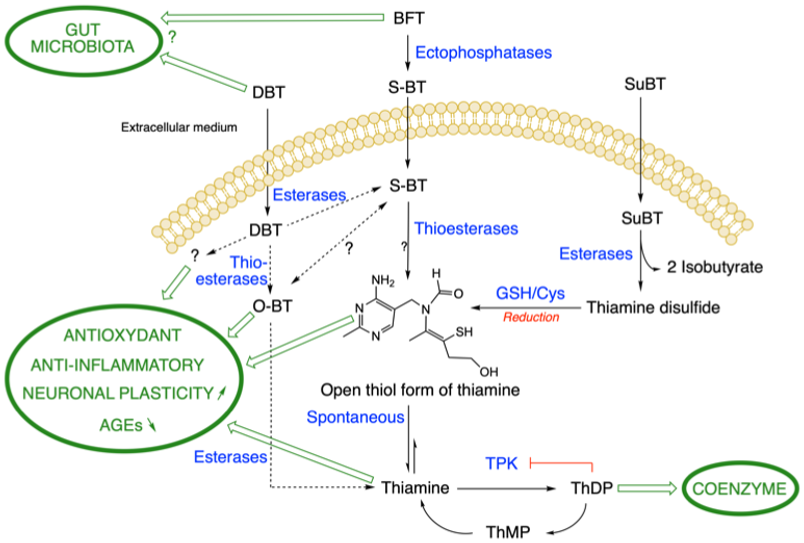You are here
Synthetic Thioesters of Thiamine: Promising Tools for Slowing Progression of Neurodegenerative Diseases
Speakers
Abstract
Thiamine (vitamin B1) is essential for brain. This is attributed to the coenzyme role of thiamine diphosphate (ThDP) in glucose and energy metabolism. However, thiamine triphosphorylated derivatives thiamine triphosphate and adenosine thiamine triphosphate — the latter discovered in our laboratory — have been described, but heir physiological roles remain unknown. We have recently become interested in thiamine precursors with higher bioavailability. Among these, the thioester benfotiamine (BFT) has been extensively studied and has beneficial effects both in rodent models of neurodegeneration and in human clinical studies. BFT has no known adverse effects and improves cognitive outcome in patients with mild Alzheimer’s disease (AD). The mechanisms of action of BFT remains unknown. Indeed, in cell culture and animal models, BFT has antioxidant and anti-inflammatory properties that seem to be mediated by a mechanism independent of the coenzyme function of ThDP. Recent in vitro studies show that another thiamine thioester, dibenzoylthiamine (DBT) is even more efficient that BFT, especially with respect to its anti-inflammatory potency and is effective at lower concentrations. Thiamine thioesters have pleiotropic properties linked to an increase in circulating thiamine concentrations and possibly in hitherto unidentified open thiazole ring derivatives. The identification of the active neuroprotective derivatives and the clarification of their mechanism of action open extremely promising perspectives in the field of neurodegenerative, neurodevelopmental and psychiatric conditions.


